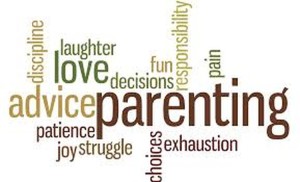 Here are some expanded thoughts regarding the four suggestions for parenting adult children from today’s talk. Unfortunately, I didn’t have enough time to unpack the practices. Hopefully, the questions and statements below will help in developing our parenting practices.
Here are some expanded thoughts regarding the four suggestions for parenting adult children from today’s talk. Unfortunately, I didn’t have enough time to unpack the practices. Hopefully, the questions and statements below will help in developing our parenting practices.
1] Make space
- How can you give your child or adult child opportunity to develop independence?
- Who can you give your child opportunity for responsibility?
- Do you trust your child?
- How can you work on building trust?
- Are you keeping your word with your child?
- How can you let go or loosen the strings?
- What can your child do by himself/herself?
2] Know them
- What activity can you engage in to create a conversation?
- How can you listen more?
- How can you observe your child more?
- Who are the voices speaking into your son/daughter’s life?
- What is your child’s passion?
- What does he/she enjoy doing?
- How do they feel?
- Is your child struggling with anything today? What is it? Have they articulated it or is it based upon your perception?
- Your children are going to think differently and perceive the world differently than you do. How do they perceive it? How are they interpreting it? Are you making the “issue” more important than the relationship?
“If I want to love my adult son or daughter meaningfully, then I have to get to know him or her and his or her attitudes, views and life perspectives.” ~ Ronald Greer, NOW That They Are Grown.
3] Help them
- How can I be present in my child’s life?
- How can I be helpful in this situation?
- What’s does “two-finger spotting” look like in this case? (Remember the weight lifting illustration)
- Am I intrusive and overbearing? How can I guard against it?
- What is the difference between being present and hovering?
- Do I know the difference between being helpful and taking care of something for my child? You help a child do what he/she is unable to do for themselves. When you take care of something for your child, you’re doing for them what they’re capable of doing for themselves. Learn the difference between the two. You help with burdens; your child is to carry their own load.
- There’s a huge difference between solicited and unsolicited advice? Do I know the difference? Does my child ask for my input? Do I give advice that isn’t requested?
4] Encourage them
- How have you spoken to your child in the last few weeks?
- Is your conversation always about correction or does it give a future/hope?
- Does your child know you love them? When was the last time you said, “I love you.”
- When was the last time you said, “I’m glad you are my child.”
- Where is the common ground on which you can build the relationship with your child?
- Does your child know you are for them? Have you told them recently? Have you shown them recently?
- How can you bring encouragement into your child’s life? What actions speak loudest into their life?
Fathers, do not provoke your children, lest they become discouraged. Colossians 3:21 ESV



